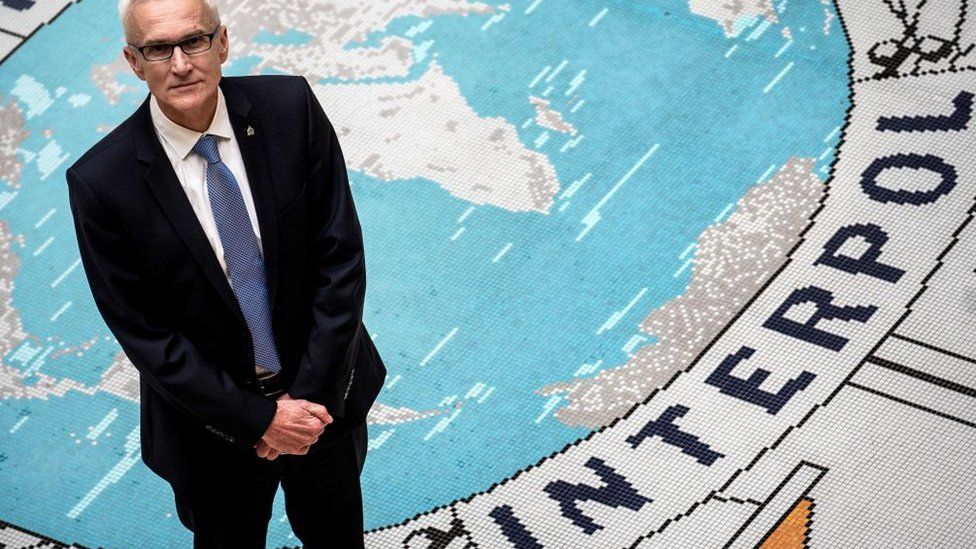ARTICLE AD BOX
 Image source, Getty Images
Image source, Getty Images
By Marc Cieslak & Tom Gerken
BBC Click
Interpol secretary general Jurgen Stock says the global police agency is investigating how the organisation could police crime in the metaverse.
The metaverse is the widely-discussed, but not yet realised, concept that in the future people will be represented by 3D avatars in their online lives.
Interpol has built its own virtual reality (VR) space, where users can do training and attend virtual meetings.
Mr Stock said it is important for the agency to not get left behind.
"Criminals are sophisticated and professional in very quickly adapting to any new technological tool that is available to commit crime," he said.
"We need to sufficiently respond to that. Sometimes lawmakers, police, and our societies are running a little bit behind.
"We have seen if we are doing it too late, it already impacts trust in the tools we are using, and therefore the metaverse. In similar platforms that already exist, criminals are using it."
The environment, which can only be accessed through secure servers, enables police officers to experience what the metaverse could be, giving them a sense of the crimes that could occur, and how they could be policed.
Image source, Interpol
Image caption,Interpol has created a virtual version of its Lyon headquarters
Some people think the metaverse could be the future of the internet.
The belief is that it could be to VR what the modern smartphone is to the first clunky mobile phones of the 1980s.
Instead of being on a computer, in the metaverse you might use a headset to enter a virtual world connecting all sorts of digital environments.
But because it's still just an idea, there's no single agreed definition of the metaverse.
In as many words, calling a VR world the metaverse is a bit like calling Google the internet.
So how can Interpol, an organisation that facilitates global police co-operation, investigate the metaverse if it does not yet exist?
This is where virtual worlds would come into play.
But within these virtual worlds there have been real-life problems.
And later that year, campaigners said the avatar of a 21-year-old researcher was sexually assaulted in Meta's VR platform Horizon Worlds.
The BBC's technology correspondent Marc Cieslak explains the metaverse
What is a metaverse crime?
Dr Madan Oberoi, Interpol's executive director of technology and innovation, said there are issues with defining a metaverse crime.
"There are crimes where I don't know whether it can still be called a crime or not," he said.
"For example, there have been reported cases of sexual harassment.
"If you look at the definitions of these crimes in physical space, and you try to apply it in the metaverse, there is a difficulty.
"We don't know whether we can call them a crime or not, but those threats are definitely there, so those issues are yet to be resolved."
He said one of the big challenges facing Interpol was raising awareness of these problems.
"My typically used example is that if you have to save a drowning person, you need to know swimming," he said.
"Similarly, if law enforcement is interested to help people who have been hurt in the metaverse, they need to know about the metaverse.
"And that is one of our objectives - to make sure law enforcement personnel start using the metaverse and they become aware.
"In that sense, it is very important."
The BBC's technology correspondent Marc Cieslak explores Interpol in VR
In terms of regulation, Nina Jane Patel, co-founder and head of metaverse research organisation Kabuni, said: "That which is illegal and harmful in the physical world should be illegal in the virtual synthetic world as well.
"In this realm of convergence, we will be in a very difficult position if we can treat each other in a certain way in the virtual world, but not in the physical world.
"And we'll be causing a lot of disconnection and miscommunication between what's acceptable human behaviour in our digital world and our physical world."
And Mr Stock said Interpol will be critical in investigating future metaverse crimes.
"With a click of a mouse, evidence is on another continent," he said. "Cyber-crime is international by nature.
"This is why Interpol is so important, because only national cyber-crime does not exist - almost all of the cases have an international dimension.
"That makes the role of Interpol, almost 100 years after its creation, so critical in today's world, because no country can fight these types of crime in isolation.
"That is what Interpol is about with 195 member countries, they all are needed to tackle that type of crime."

 2 years ago
49
2 years ago
49








 English (US) ·
English (US) ·